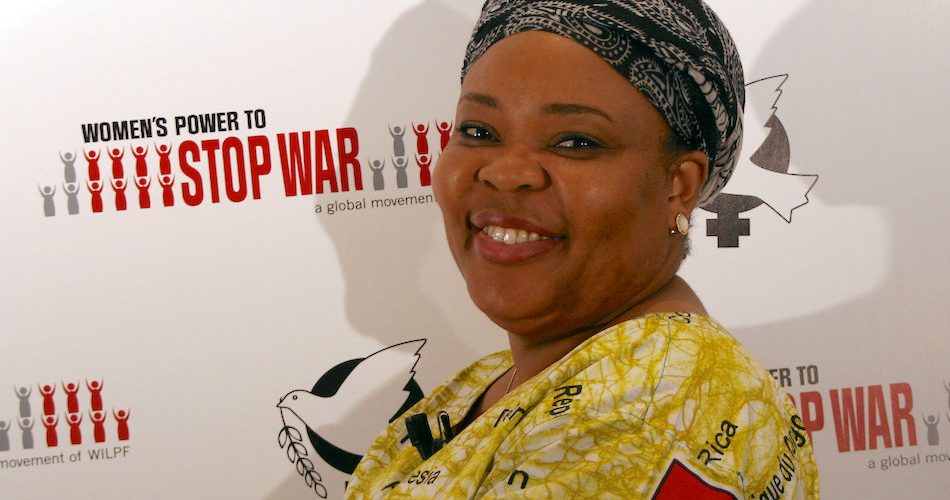2011 Nobel Peace Prize Winner
Leymah Gbowee was born February 1, 1972, in Monrovia, Liberia. Her life turned upside down in 1989 at age 17. Liberia’s civil war had begun. She has said the war turned her “from a child into an adult in a matter of hours.”
During the civil war, Gbowee trained to be a social worker and trauma counselor. She worked with children who had been soldiers. Gbowee believed women should restore peace for future generations. With this goal in mind, she helped found the Women in Peacebuilding Network (WIPNET) of the West Africa Network for Peacebuilding (WANEP).
Gbowee may be best known for organizing the Women of Liberia Mass Action for Peace, a collaboration of Christian and Muslim women. As the organization’s spokesperson, Gbowee helped end 14 years of civil war in 2003. She led protests against Charles Taylor, Liberia’s ruthless president. Those protests forced Taylor to take part in formal peace talks in Accra, Ghana.
Gbowee wanted to make sure Taylor’s men and the rebel warlords did not leave the peace talks without a resolution. To do this, she and 200 other women formed a human barricade around the meeting hall. They allowed no one to leave, regardless of the reason. Security tried to arrest Gbowee for this action, but her quick thinking saved the day. Gbowee said she would take her clothes off if arrested. In some nations of Africa, the traditional belief is that a woman stripping naked places a curse on men. Gbowee avoided arrest and the peace talks continued until an agreement was reached.
Two weeks later, Taylor resigned, and a peace treaty was signed. The peace treaty called for a transitional government. The election held in 2015 has been considered the most fair and legitimate in Liberian history.
In 2006, Gbowee co-founded the Women Peace and Security Network Africa (WIPSEN-A) in Accra. This nonprofit organization helps African women become peace leaders.
The 2008 documentary Pray the Devil Back to Hell tells Gbowee’s story. The documentary, and her memoir Mighty Be the Powers, and her lectures have inspired people around the world.
Gbowee, mother of seven children, earned a master’s degree in conflict transformation from Eastern Mennonite University in Harrisburg, Virginia. She received honorary degrees from Rhodes University in South Africa and the University of Alberta in Canada. In 2011, she was awarded the Nobel Peace Prize. In 2012, she founded the Gbowee Peace Foundation Africa (GPFA) to provide educational and leadership opportunities for women and youth.
References
“Charles Taylor Fast Facts.” (25 January 2015). CNN online. Retrieved from cnn.com/2013/04/26/world/africa/charles-taylor-fast-facts/
“Gbowee.” (15 October 2015). The Gbowee Peace Foundation. Retrieved from gboweepeaceafrica.org/index/page/id/3
“Leymah Gbowee – Biographical.” (2011). Nobelprize.org. Nobel Media AB. Retrieved from nobelprize.org/nobel_prizes/peace/laureates/2011/gbowee-bio.html
“Leymah Gbowee – Facts.” (2011). Nobelprize.org. Nobel Media AB. Retrieved from nobelprize.org/nobel_prizes/peace/laureates/2011/gbowee-facts.html
“Nudity.” (n.d.). Wikipedia. Retrieved from en.wikipedia.org/wiki/Nudity#The_curse_of_nakedness
Image credit: Leymah Gbowee, Nobel Peace Prize laureate 2011 by Li Grebäck is licensed under CC BY NC ND 2.0.


